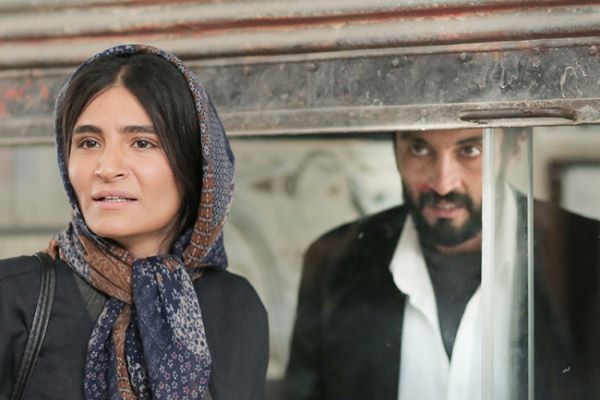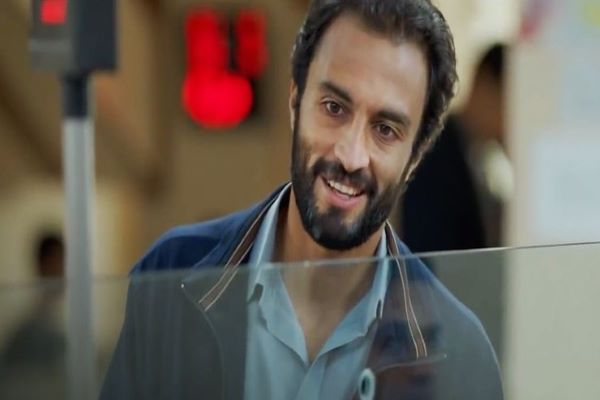Like his previous films, Asghar Farhadi’s A Hero deals with ordinary people and their lives. A debt-convict returns 17 gold coins, which her girlfriend picked up on the street, to its rightful owner. As a normal human, he makes mistakes but does not deviate himself from his morality. He strongly opposes the emotional exploitation of his son to draw public sympathy for his own benefit. The film raises the most important question – is he not a hero? Is it a fair expectation from a human that he will never make any mistake? Can all the good deeds be erased for a simple mistake? A Hero only motivates the viewers to contemplate but does not answer any questions. The narrative of the film is complex with multiple layers. Everybody has reasons for their behaviors and nobody can be hated. In his films, Farhadi never creates any character who deserves hatred. The film deals with common people, their lives including morality, mistrust, separation, love, helplessness, and vulnerability. A Hero shows how common people lose their ground unfortunately and unexpectedly in the Whirlpool of life.

Rahim (Amir Jadidi) gets out of prison on parole for two days to visit his family. He took a loan worth 150,000 tomans from his ex-wife’s brother-in-law named Bahram (Mohsen Tanabandeh) but was not able to repay him back as his business venture of printing and calligraphy failed. Bahram sued him and he was arrested and subsequently put behind bars. Rahim’s girlfriend Farkhonde (Sahar Goldoost) picked up a purse containing 17 gold coins on the street. The gold coins are now worth 70,000 tomans, and Amir and Farkhonde decide to repay Bahram that amount, which may get him out of prison if Bahram agrees. However, Rahim’s conscience does not allow him to sell those coins. He decides to return that purse to its rightful owner. Rahim visits his elder sister Mali’s house and has a good time with Mali and her family. His son Siavash has a severe stammering problem. Siavash does not believe that his father can be guilty of anything. As per the advice of some bank employees, Rahim sticks some posters on posts and pillars in search of the rightful owner of the purse. A woman turns up as the owner and Mali returns the purse to her.
Prison authorities come to know about Rahim’s good deed and use this as an opportunity to divert public attention from a recent suicide of a prisoner. They call on media people who broadcast Rahim’s interview. He becomes a media sensation overnight. A local charity organization rewards him with a merit certificate and a job reference. Rahim visits the employer and gives the reference. However, the HR manager wants to verify his good deed and asks for the phone number of the purse owner. Rahim did not collect sufficient information about the owner and can’t track her.
In desperation to secure his job, Rahim presents Farkhonde as the purse owner. The HR manager still needs Bahram’s approval for Rahim’s candidature. Rahim visits Bahram’s shop but engages in a scuffle with him, which is captured on a video by Bahram’s daughter Nazanin (Sarina Farhadi). It gets revealed that Rahim falsely presented his girlfriend Farkhonde as the purse owner. Now, everybody suspects him and is not ready to believe his good deed. Prison supervisor Taheri makes a tactic and shoots a video of Rahim’s son Siavash claiming that his father is not guilty of anything to draw public sympathy for Rahim. Rahim strongly objects to the exploitation of his son’s speech impediment for his favor and forces Taheri to delete the video. Finally, Rahim returns to the prison while Farkhonde and Siavash see him off.

Farhadi’s films are always centered around ordinary people and their lives. Humans are fallible. So, they make mistakes. But, Farhadi’s characters have reasons and logic for their behaviors. Nobody can be bluntly termed as guilty. Everybody is reasonable from their own standpoint. Rahim should have registered all the necessary details of the purse owner and handed over the purse himself. But, do we always register all the necessary details in our own lives? Don’t we make mistakes at crucial times? Can we be stripped of our achievements because of our mistakes? Bahram sued Rahim, got him arrested, and always doubts his intentions. But, Rahim also broke his trust by not repaying his money back.
Prison authorities did not bother whether Rahim or his girlfriend picked up the gold coins. They only cared whether the coins were handed over to the rightful owner, and they needed to divert public attention from the recent suicide of a prison inmate. The charity foundation no longer trusts Rahim because he falsely presented his girlfriend Farkhonde before the employer. The HR manager of the employer wants to verify whether he really handed over the coins to the purse owner. It is quite obvious that all the facts and records are checked before an appointment for a job. So, all the characters have justifications for their actions. Farhadi wants to portray human lives which are multidimensional. There is no direct answer to all the questions that his films raise. The significance of his films is in asking questions and not answering those. His films are complex, multilayered, and multidimensional much like life itself. Unsurprisingly, A Hero is not an exception.
Farhadi’s screenplay is complex, multilayered, multidimensional, and tightly woven. As a filmmaker, his biggest achievement is that this complex storyline flows so spontaneously and naturally that it does not look staged. He has supreme command on his actors and they are never off the track. The actors went through a rigorous rehearsal process for over ten months. Farhadi is deeply influenced by his theater background and focuses much on rehearsals before the filming. Amir Jadidi portrays Rahim’s tumultuous life quite efficiently but always with a gentle smile on the screen. Ali Ghazi’s documentary-style hand-held cinematography and Hayedeh Safiyari’s fast-paced editing have made the film extremely dynamic and much like a thriller. A Hero was nominated to compete for the coveted Palme d’Or at the 2021 Cannes Film Festival where it won the prestigious Grand Prix award. It has been selected as Iran’s official submission at the 94th Academy Awards.
